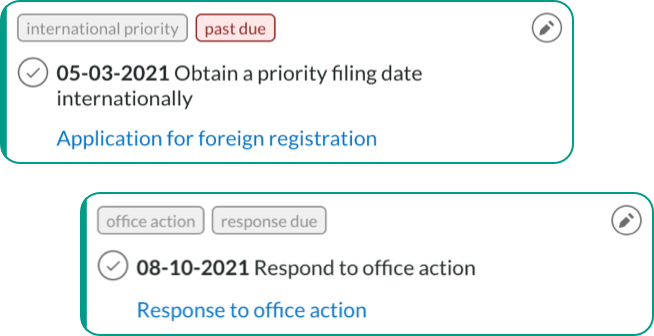When “Automation” Isn’t REALLY Automation
Nehal Madhani | November 09, 2021
When you’re in the market to purchase legal technology, you can expect to be hit with a lot of tech-y buzzwords: automation, artificial intelligence (AI), natural language processing, and machine learning, to name a few. But what do these terms actually mean? Is there substance behind the buzzwords or are they just marketing hype? As we lawyers like to say, it depends.
There is no industry standard that defines or governs the use of these terms, so when you’re looking at vendors that claim they offer automation, AI, natural language processing, or machine learning, know that these terms have broad, vague meaning. This makes it incredibly challenging to understand how different technology solutions can actually add value to your practice and even more challenging to compare products.
The need for legal tech is here to stay with nearly 80% of state bars creating a duty of technology competence. Even more, as demands and workloads have increased, automation has become a necessity for legal professionals. At Connect 2021, Alt Legal’s virtual trademark conference, I spoke about the importance of using data-driven automation to meet trademark practitioners’ needs. As trademark application filings surge globally, client expectations continue to grow and the need to reduce legal spend intensifies, it is becoming increasingly difficult to keep up with workloads and meet client demands. Implementing legal technology to automate legal work is essential.
Defining Automation
Simply put, automation is when technology performs a task for you without you having to take any action. In the context of legal work, automation can streamline repetitive, administrative tasks that do not require any decision-making capabilities. This allows legal professionals to focus on substantive and client-oriented tasks.
How Vendors Define “Automation” Differently
Many vendors say that their software is automated, but their definition of automation varies widely. When assessing “automated” legal tech, you’ll need to determine exactly how automated the software is:
- Is the automation perfunctory in that once you take or initiate the action, the software will complete the task? Just like when you turn on a light switch, the light goes on?
- Or does the automation require less action on your part, more like a smart home that understands where you are in the home and turns on lights and knows when you are not in the room and turns off lights?
- Even better, does the automation anticipate and execute actions for you, as with AI-driven technology like Siri? Siri learns behaviors and knows that whenever your Airpods are plugged in the evening to suggest Showtime for you since that’s what you usually watch in the evening.
It’s important to understand what the software vendor includes in its definition of automation; are you getting “light switch” automation, “smart home” automation, or “AI-driven” automation? You’ll also need to consider what your needs are and the level of automation that your practice requires to run most efficiently.
IP Docketing Automation
The variable definition of automation is particularly pronounced in the world of IP docketing. In the absence of automation, trademark docketing clerks need to manually input all attributes of filings and manually calculate deadlines.
Fortunately, there are opportunities to automate this workflow. On the lower end of the technology scale, some vendors offer “minimal automation” where the user provides the application number and IP office, and the software retrieves the data. The user will still need to input the deadline and manually trigger updates.

Request a Demo
Request a demo to see Alt Legal's docketing automation in action!
Learn MoreAs a step up, other vendors offer “mid-level automation” where software will not only retrieve information about an IP filing based on an application/registration number and IP office, but it will also calculate the deadline for you.
On the higher end of technology, trademark docketing software (including Alt Legal) will identify your filings (based on filing emails), retrieve all the information regarding the filing, add and clear deadlines based on your prosecution history, and keep your filings and deadlines updated without any manual activity.
Of course, these forms of automated docketing are limited by the data provided by IP offices, and with 180+ IP offices, there is quite a bit of variability. Ultimately, trademark professionals should evaluate the level of automation docketing vendors provide across respective offices compared to the level of access IP offices provide to data.
Automation Matters – Competitively and Ethically
The pandemic has certainly accelerated technology adoption among legal professionals as they look to free up time, improve client service in a semi-remote world, and ultimately remain competitive. Technology budgets are increasing. By way of example, Gartner predicts that in-house legal tech budgets will increase 200% by 2025.
Even more, you also need to concern yourself with technology from an ethical standpoint. Thirty-nine state bars have adopted the ABA’s technical competence requirement (see Comment 8), instructing lawyers to stay updated on the “benefits and risks associated with relevant technology.”
As you evaluate legal technology, it’s important to remember that vendors do not operate from a common dictionary. Make sure to ask questions in order to accurately compare the level of automation provided by different tools.